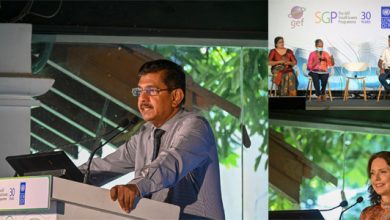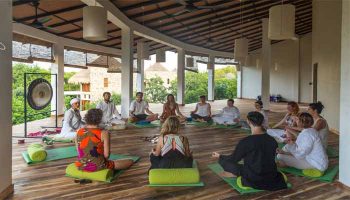Sexual abuse in Sri Lanka.

 By Dr Marcel de Roos (Psychologist PhD, the Netherlands)
By Dr Marcel de Roos (Psychologist PhD, the Netherlands)
In my psychology practice I hear time and again stories about sexual abuse. I am quite appalled by the number of incidents reported by clients. When I compare this with the incidents I heard in my practice in the Netherlands then in Sri Lanka or in the Maldives the prevalence must be at least ten or twenty times higher.
It’s usually people you know (uncles, aunties, other relatives, domestics, drivers, etc.) who commit these horrendous crimes, and not the proverbial scary stranger. Perhaps it’s the culture of keeping children innocent for a long time, or not talking about sexuality, or the practice of telling children to cuddle with relatives (“let uncle carry you or go and sit on uncles lap!”), or the male dominated culture that enables this to continue on a big scale.
Sexual abuse consists of all sexual acts that someone is forced to perform, to suffer or to be forced to witness. Examples are to be forced to satisfy someone sexually, forced to undress for someone or to be touched or to be penetrated. You can be forced physically or be threatened or perpetrators make use of the victim’s feeling of guilt. Often the victim is dependent on the perpetrator or afraid of him so you can be forced. Especially children can be easily made victims but also rape within a marriage occurs often because of the dependent situation of the wife.
One of the most persistent myths is that the victim must have asked for it by wearing provocative clothing or by behaving in a provocative way. Wearing a short skirt or behaving in a certain way is NOT an invitation to be assaulted. Or it’s condoned by the saying “boys will be boys”. We have surpassed the cavemen times and we are supposed to be civilised.
Nowadays sexual abuse is seen as a widespread and a multiform phenomenon that can have far reaching consequences for the victim. For many victims the abuse causes a trauma (and often they will suffer from a post traumatic stress disorder). After sexual abuse your basic feeling of safety is damaged. In order to function as a person (and especially as a child) you need to feel safe in your own environment. With sexual abuse there is no “safe environment” at all and no control over your own life. Everything you need to develop as a child and to feel stable as an adult has been affected.
In Sri Lanka there is a big taboo on speaking out after sexual abuse. “Just forgive and forget, so many girls have experienced it, you must have provoked it, why were you outside after 8 pm, your husband has his needs”, etc. Because you continue to carry the memories there will be an ongoing tension. With children this often translates itself into psychosomatic complaints like stomach pain and headaches. Adults repeatedly isolate themselves and try to avoid situations which can remind them of the trauma. This frequently leads to emotional “anesthetised” behaviour and they react as if they are numb.
In cultures like in Sri Lanka where honour and shame play an important role, victims find it very difficult to talk about what has happened to them. Many of them are convinced that the sexual abuse has happened to them for a reason. In addition, feelings of guilt can slowly destroy you. The guilty feeling can occur out of self protection or because others have imposed that on you. By blaming the perpetrator it can give you an unbearable feeling of powerlessness and helplessness. When you feel that you are responsible for the abuse then that gives you a certain feeling of control.
The sexual abuse will influence the relationships of the victim too. For the partner of the victim it can be very difficult: anger, powerlessness, hurt and supportive feelings wrestle with each other. The sexual abuse can cause serious relationship issues. Sexuality, intimacy and trust aren’t as natural as they were. Much determination and openness from both partners are mandatory in trying to solve this. They have to be able to express what they feel but they also have to be good listeners. Very often counselling is needed.
Treatment of sexual abuse is not something that anybody can do. Because of the severity of the trauma and the complexity of it, it is recommended that therapy should only be given by professional psychologists.






